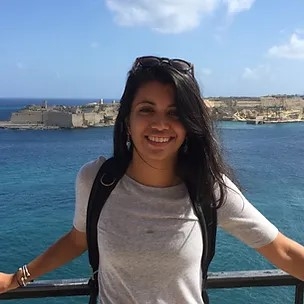Big Ocean States and 30 x 30
–
Online
Free
Open to the Public

Experts agree that 30% of the ocean must be strongly protected to maximize fisheries yield and safeguard marine resources. Marine Spatial Planning is a valuable tool in global efforts to reach that goal by 2030.
Big Ocean States and 30 x 30
Speaker: Zara Currimjee, Program Manager, Waitt Institute
Thursday, November 30, 2023
6:00pm to 7:00pm Pacific Time
Online via Zoom (details below)
About the Topic
Experts agree that 30% of the ocean must be strongly protected to maximize fisheries yield and safeguard marine resources. 2030 is the target year given by the United Nations by which we must protect 30% of the world’s ocean space to give our environment a chance to rebuild and thrive. With more nations committing to the global goal of protecting 30% of the ocean by 2030, Marine Spatial Planning is a valuable tool for governments and communities to implement these targets and determine the best areas of the ocean to protect. The speaker will share more about how big ocean states are leveraging Marine Spatial Planning to take proactive steps toward safeguarding their marine resources to enhance the wellbeing of their communities and economies.
About the Speaker
Zara Currimjee manages the Waitt Institute’s program in the Federated States of Micronesia, where she works with government and NGO stakeholders to protect their ocean and advance the implementation of Marine Spatial Planning.
Zara was born and raised in Mauritius, and has always made the ocean a way of life. She has a M.A. in Ocean and Coastal Resource Management from the Middlebury Institute of International Studies and a B.A. in Environmental Biology from Williams College. Both her masters and undergraduate studies have propelled her to lead meaningful ocean advocacy work. This includes working for Oceana conducting feasibility studies and fundraising for new offices, campaigning against harmful fisheries subsidies, and most recently managing Oceana’s Office of the CEO. She also produced an award-winning documentary advocating for the first national seasonal fishing closure in Mauritius and led the design of the Waitt Institute’s approach to sustainable finance assessment in Montserrat and Curacao.
Zoom Link
https://middlebury.zoom.us/j/93416660930?pwd=RDEvU21PMjkvYmJISjZzWGdUV3MrQT09
Password: NoPlanetB
Meeting ID: 934 1666 0930
Or iPhone one-tap :
US: +16694449171„93416660930# or +16699006833„93416660930#
Or Telephone:
Dial(for higher quality, dial a number based on your current location):
US: +1 669 444 9171 or +1 669 900 6833 or +1 346 248 7799 or +1 719 359 4580 or +1 253 205 0468 or +1 253 215 8782 or +1 305 224 1968 or +1 309 205 3325 or +1 312 626 6799 or +1 360 209 5623 or +1 386 347 5053 or +1 507 473 4847 or +1 564 217 2000 or +1 646 876 9923 or +1 646 931 3860 or +1 689 278 1000 or +1 301 715 8592
Meeting ID: 934 1666 0930
Phone Password: 955312037 (no participant id, press # to bypass)
International numbers available: https://middlebury.zoom.us/u/auz5a5K2C
Questions
The Center for the Blue Economy is a research organization at the Middlebury Institute of International Studies. Our mission is to promote a sustainable ocean and coastal economy (the “Blue Economy”) through leadership in research, analysis, and education. For questions contact: Rachel C. at cbe@middlebury.edu or visit centerfortheblueeconomy.org or call 831-647-4183 (must leave message and receive call back).
Email Notice Reminders?
If you wish to receive email reminders one day prior to the talks (as well as 15 minutes ahead of each event), contact cbe@middlebury.edu with that request and we will “make it so.”
